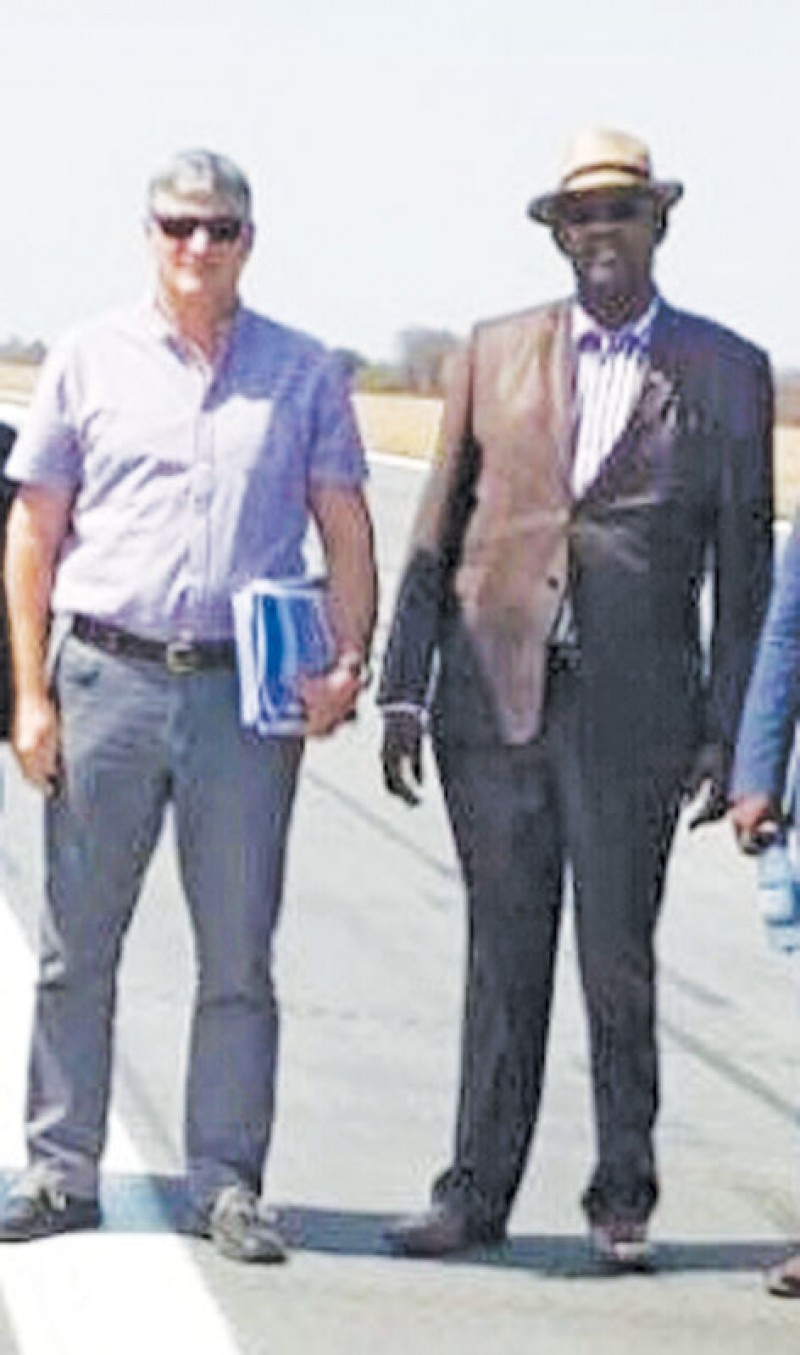Brite Star president visits SPEDU
Staff Writer | Friday December 15, 2017 17:27


Attracted by the tax and duty incentives package launched in March for Phikwe, the group plans to develop an aircraft assembly plant, research centre, maintenance workshop, hospitality facilities and pilot training centre.
During his visit, Katona confirmed that Brite Star Aviation is moving ahead with the project and a consulting team for the Botswana venture has been appointed. The team has already made several visits to the site and are working on various timelines and designs for the project.
“We have received various supporting letters from the stakeholders in Botswana. Brite Star lawyers are working on the contracts to be signed in due course,” he said.
Katona said discussions regarding training are ongoing and approximately 20% of the investment will go into training since there is a lack of skilled aviation and composite engineers and personnel in Botswana. Brite Star intends to set up a fully integrated training facility complete with lecture rooms adjacent to its composite plan and assembly factory in Selebi-Phikwe.
Katona also suggested that some students could be sent to Brite Star’s Malaysia operations and partners for composite and other trainings. Brite Star and its international operations and University partners will also establish linkages with Botswana universities and training institutions so that there can be a transfer of cutting edge aviation technology and skills to Botswana.
“Composite Engineering training is complex, but in huge demand worldwide. Besides Brite Star aircraft, which are fully composite, composite technology can be used for making many other products such as buses, trucks, boats, trailers and others,” he said.
While he was in Botswana, Katona also met with the BITC officials Meshack Tshekedi and Anthony Sefako at their offices. Katona said he was very grateful for BITC’s support to the project and thanked BITC officials. BITC will continue to assist Brite Star in facilitating its entry into Botswana.
The Brite Star team also met with SPEDU officials and made a visit to the Selebi-Phikwe airport. SPEDU CEO Dr Mokubung Mokubung also updated the team about the tremendous progress made between the MOU parties regarding the project.
It is estimated that the aerospace composites market is projected to reach $42.97 billion by 2022 from $26.87 billion in 2017. The major factors fueling the growth of the aerospace composites markets across the globe are the increasing use of aerospace components in commercial and military aircraft. The use of aerospace composites in the commercial aircraft has gained momentum during the past few decades.
Statistics show that up to 53% of the latest Airbus aircraft is made using aerospace composite materials as compared to old aircraft models. The main reason for the growing use of aerospace composites in aircraft are the reduction in the weight of aircraft and high resistance offered against corrosion. Moreover, the maintenance costs of aircraft manufactured using aerospace composites are lower in comparison to the maintenance costs for aircraft manufactured using traditional materials.
Brite Star, a global aviation group also invested in hospitality and training, plans to plough more than P1.4 billion over the next five years on a 10-hectare plot near Selebi-Phikwe Airport, employing up to 3,000 workers. Brite Star works on a partnership model in America, Malaysia and Australia and in Botswana, will be seeking local partners.
The group says its recruitment will prioritise former BCL Mine employees and will engage with the Botswana Mine Workers Union.
